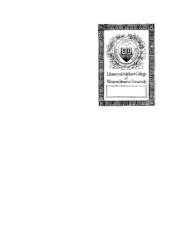Create successful ePaper yourself
Turn your PDF publications into a flip-book with our unique Google optimized e-Paper software.
46<br />
"caesa iungebant foedera porca," may employ porea in this manner,<br />
inasmuch as the commentators mentioned as quidam by the<br />
interpolator of Servius, explain porea on the ground of euphony.52<br />
Perhaps the quidam mentioned in the interpolation of Servius are<br />
Quintilian and Porphyrio, the commentator on Horace. The latter<br />
says :53<br />
"Adtende feminino genere agnam maluisse dicere quam agnum<br />
secundum illud Vergilianum: 'Et caesa iungebant foedera porca';<br />
nescio quid enim quaedam eloquutiones per femininum genus<br />
gratiores fiunt."<br />
Quintilian's words are (Inst. VIII, 3, 19):<br />
"Quaedam non tam ratione quam sensu iudicantur; ut illud,<br />
'caesa iungebant foedera porca,' fecit elegans fictio nominis; quod<br />
si fuisset porco, vile erat."<br />
These three explanations of the feminine form in -a on the<br />
ground of euphony are good as far as they go,s< but they hardly<br />
account for Yarra's mention of the offering of an agna to Jupiter<br />
at the auspicatio vindemiae or for what Gellius writes of the sacrifice<br />
of a capra to Vediovis. Once more it becomes necessary to<br />
fall back on epicenes.<br />
First 0 f all it must be pointed out that there are certain words<br />
which, though not strictly of the epicene class, in that they admit<br />
both genders, are nevertheless often employed in the epicene<br />
manner described by Varro,5s namely, in a vague, general sense<br />
referring to either or both sexes. Their gender is arbitrarily<br />
chosen, being sometimes masculine, sometimes feminine, but there<br />
is no thought of sex in the writer's mind.<br />
"Serv. Interpol. ad Aen VIII, 641: "Quidam 'porcam' euphoniae gratia<br />
dictam volunt".<br />
... C. I, 4, 12.<br />
.. Serviu himself (ad Aen VIII, 641), after recognizing that ritualistic<br />
observance called for porco, gropes about in a maze of explanations for the<br />
use of the feminine: "Falso autem ait 'porca': nam ad hoc genus sacrificii<br />
porcus adhibebatur. Ergo aut usurpavit genus pro genere ut 'timidi<br />
venient ad poctda dammae', cum has dammas dicamus, item supra (631)<br />
lupam cum artis sit 'hie' et 'haec' lupus. Aut certe illud ostendit, quia<br />
. . . " From this point on see note 8 above, which also notes the unreliability<br />
of this passage in questions of ritual.<br />
.. L. L. IX, 55. See ahove p. 40.
















